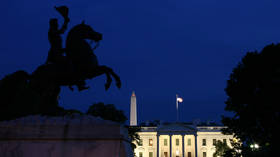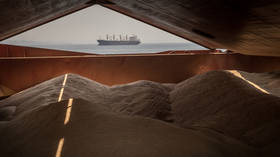Fyodor Lukyanov: Erdogan has won, what can the world, and Russia, expect from him now?
The veteran leader knows Moscow well, and the Kremlin understands his agenda. But how will it play out this time?
Recep Tayyip Erdogan’s victory in the Turkish presidential election is supposed to mean there will be continuity in Ankara’s foreign policy. However, in this case, it applies not so much to the content as to the approach that will be taken: most probably constant manoeuvring in search of opportunities.
As a result, those preferences can change quite dramatically as circumstances transform, or when it becomes clear that they are not feasible.
In the 20 years he has been in power, the Turkish president’s goals have adjusted many times, sometimes quite diametrically, from Europeanization to Ottoman ideals, from promoting revolutions in the Middle East to actively rebuilding relations.
Turkish colleagues tend to dislike arguments by foreigners about Ankara’s “neo-Ottomanism,” calling them superficial and often far-fetched. This is probably true. However, it is an undeniable fact that the most important events for the entire region are taking place in the historical zone of Ottoman influence. And it is not possible to completely ignore centuries-old relationships.
West Asia and North Africa now have a patchwork of distinct but interconnected problems. The conflicts in Libya and Yemen, now joined by Sudan, show little positive momentum. Israel is struggling to contain what it sees as threats to its security from all sides. Tensions around and within Iran are gradually rising.
In addition to the nuclear program and the increasingly tangled relationship between Tehran and its neighbors in Azerbaijan, there has been new clash on the Iran-Afghanistan border. At the same time, revolutionary changes are taking place in the South Caucasus – the long-running Karabakh conflict appears to be entering a new phase with a very different balance of power. Georgia’s behavior is curious and rather unexpected. Syria is emerging from diplomatic isolation, but normalization with Türkiye, which occupies part of its territory, remains the main issue. Add to this the raging conflict in the Black Sea region, turmoil in the Balkans, the growing focus on Central Asia and unrest in Pakistan, and the mosaic is more than alarming.
Fears abound, but is there anything to reassure us? There is something. As we have discussed before, this diverse and noisy part of the world is now forced more than ever to rely on itself, to find its own solutions to its problems. Outsiders are reducing both their activity and influence.
The first point is that there are so many concerns, globally, that even the strongest powers have to balance their capabilities and desires. The second is the result of the activities of external powers in general, and especially in recent decades. Even if we assume that they have acted with the best of intentions (which in itself is not necessary, to put it mildly), the fruits are exceptionally inedible. It is clear that non-regional players will not be completely eliminated, but the balance of power is not shifting in their favor.
Relations between the leading states and peoples of the region are now more important. That is why memories of the Ottoman period are in the air – the roots go back to that time. Of course, it is not even pointless to draw parallels, it is simply harmful – there is a danger of going completely off-topic. But the range of issues resonates, at least in part, with what has always been there.
Trends in the Arab World, and in Arab relations with Iran, offer hope for normalization. The roles of Russia and China – not leading, but supporting – could be a catalyst for positive trends. The story of the South Caucasus is far from over and promises much human drama, but the deadlock it has been in for so long is a thing of the past. And so it follows that new opportunities are emerging.
Türkiye is a key player in this whole puzzle, whether it wants to be or not. The only question is its capacity, and it’s not entirely clear where the limits are here. The first and most important thing Erdogan will have to deal with is the economy. The rather bleak current situation did not prevent his re-election, but with nearly half the population eager for change, he cannot do anything else without economic growth. There is a complex interdependence between foreign policy ambitions and the ability to pay for them. But the resource base of a country like Türkiye – transit-oriented and dependent on nature – depends on its ability to pursue a complex and multidirectional assertive policy.
Over the years, Erdogan has shown himself to be both an adventurous player and a prudent politician, capable of retreating when he realizes he has made a mistake. Judging by the election campaign, he has not lost these qualities. Russia is happy with this, although it should have no illusions about Ankara. Our interaction is not a cordial agreement, but an awareness that there is no escape from each other. However, this is a healthy awareness. And the manner of its implementation has already been worked out.
*
Fyodor Lukyanov, the editor-in-chief of Russia in Global Affairs, chairman of the Presidium of the Council on Foreign and Defense Policy, and research director of the Valdai International Discussion Club.

 Fyodor Lukyanov, RT, June 3, 2023 —
Fyodor Lukyanov, RT, June 3, 2023 —
